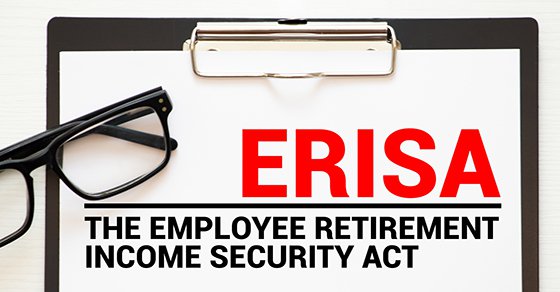Extended Benefit Claims and Appeals Periods During COVID-19
- Learn more about relevant deadlines for claims and appeals periods regarding employee pension benefits plans subject to ERISA.
- Find out which other plans this relief applies to.
- Learn how the “outbreak period” affects extended deadlines.
- See real-world examples of applicable claims.
In response to the COVID-19 pandemic, federal agencies have extended certain claims and appeals periods. These claims and appeals periods apply for employee pension benefits plans subject to the Employee Retirement Income Security Act (ERISA). The relief also applies to qualifying group health plans. Even better – relief extends to eligible disability plans and other employee welfare benefit plans as well.
The extension permits the “outbreak period” — which began March 1, 2020, and will conclude 60 days after the announced end of the COVID-19 emergency — to be disregarded for specified purposes related to claims. Fiducial has more details below!
Pertinent deadlines for claims and appeals periods
Affected timeframes include the deadlines for individuals to:
- Notify the plan of a qualifying event or determination of disability,
- File claims for benefits, and
- File appeals of adverse benefit determinations under ERISA plans and non-grandfathered group health plans.
Extended deadlines created for requesting external review following exhaustion of the plan’s internal appeals procedures also exist. Extensions also apply to other deadlines for perfecting an incomplete request for review.

Illustrative examples
For instance, if the COVID-19 national emergency had ended on April 30, 2020, the disregarded outbreak period would have ended 60 days later, on June 29. Thus, if an employee received medical treatment on March 1, 2020, but didn’t submit a claim relating to the treatment until April 1, 2021, and the plan required submissions of claims within 365 days of receipt of treatment, this participant’s request would be considered timely submitted.
To determine the 365-day period applicable to the claim, you may disregard the outbreak period. Therefore, the last day to submit a claim under this example falls 365 days after June 29, 2020, or June 29, 2021.
Also, based on the same assumptions, let’s say an individual received a notification of an adverse benefit determination from his or her disability plan on January 28, 2020, which notified him that there were 180 days within which to file an appeal. In such a case, the employee’s appeal deadline would be determined by disregarding the outbreak period. Therefore, the last day to submit the appeal would fall 148 days after June 29, 2020 — 180 less 32 days elapsed from January 28 to March 1 — or November 24, 2020.
More information
Although plans aren’t expressly granted more time to process and decide claims, the U.S. DOL recognizes that the COVID-19 emergency may present challenges for plans in achieving “full and timely compliance” with ERISA’s claims procedure requirements. The agency said that its approach to enforcement will emphasize compliance assistance and may include other relief. So, check back for any news to come!
If your organization sponsors an ERISA plan — for example, a pension, health plan or other type of welfare benefit plan — explore the ramifications of this extension carefully. Fiducial can provide more information and keep you updated on further developments about COVID-19-related relief. Call Fiducial at 1-866-FIDUCIAL or make an appointment at one of our office locations. Ready to book an appointment now? Click here. Know someone who might need our services? We love referrals!
For more small business COVID-19 resources, visit Fiducial’s Coronavirus Update Center to find information on SBA loans, tax updates, the Paycheck Protection Program, paid sick and family leave, and more.









